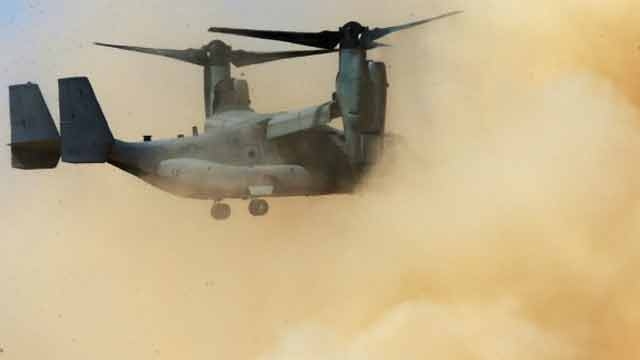Defence sector (Getty Images)
"For fiscal 2015-16, Tata Group's estimated revenue from defence and aerospace is Rs 2,650 crore, which is an increase of 7.5% over the last year."
Diversified Tata Group on Wednesday said it expects to close fiscal 2016 with a 7.5% growth in revenue from the defence and aerospace sector at Rs 2,650 crore and with the government focusing on localising the sourcing, it affirmed the commitment to invest in the space.

"For fiscal 2015-16, Tata Group's estimated revenue from defence and aerospace is Rs 2,650 crore, which is an increase of 7.5% over the last year," Tata Sons member of group executive Mukund Rajan told reporters here.
In the remarks that come a fortnight ahead of the biennial land, naval and internal homeland security systems exhibition, the Defence Expo, Rajan added over the last five years, the group's revenue from the space have seen a compounded annual growth rate of 18%.
"We are committed to making the appropriate investments to enhance India's defence capabilities in the long run," Rajan said at the specially arranged press meet where Tata group companies showcased the work they do in the sunrise sector.
He said the group's association with defence sector started in 1958 and a slew of companies including Tata Advanced Systems, Tata Advanced Materials, Tata Power with its strategic engineering division (SED), Tata Technologies, Tata Consultancy Services, Tata Steel, Tata Elxsi and Titan's precision engineering division are engaged in the sector.
Rajan was, however, tight-lipped about giving future projections for the business, but underlined the need for the government to "recognise the capability" of a large group like the Tatas and give them a fair chance to compete.
"We will not be able to give you a precise sense of the order book that we are looking at. Last year, we had mentioned a number of Rs 10,000 crore. We see similar kind of a number coming up, some are in the imminent future. A lot of the things will depend at the pace at which the contracts get announced, bid for and awarded," he said.
"I think the government has understood the security environment and the challenges we face," he said.
There has been a greater thrust on local sourcing of defence systems, which helps economy through the trickle-down effect and also strategically through the low reliance on imported solutions. With the greater focus on electronics in warfare, the need to localise has only grown.
The government's plan involves increasing the reliance on the private sector for co-development and production of the systems and a slew of corporates, including both the Ambani brothers, the Mahindra Group, Larsen and Toubro and Bharat Forge, have increased their play in this sector.
With the government opening up the sector to greater FDI, many corporates have also tied up with global majors with an eye on the domestic market.
Tata Power SED's Chief Executive Rahul Chaudhry said his unit is targeting to grow revenues by 50% every year over the next decade, and announced an investment of Rs 700 crore, over Rs 500 crore already invested, for a manufacturing plant at Karnataka's Vemagal.
He added following the Pathankot attack, there is a renewed discussion with the Indian Air Force to provide perimeter security solutions to the bases.
Tata Motors' vice-president for defence and government business, Vernon Noronha, said the future for the company is in the combat vehicles space.
On its wheeled amphibian platform Kestrel, he said it is under testing with DRDO and will be demonstrated at Defence Expo.
Tata Advanced Systems' Managing Director and Chief Executive Sukaran Singh said his company's orderbook stands at Rs 4,500 crore with a bulk of it being export orders in aerospace manufacturing.
The domestic orders will flow once the government starts its ordering, he said.
Rajan said small businesses have also benefited from its endeavours, pointing out that SED works with 750 vendors and Tata Advances Systems works with 65 small businesses.
On the employment generation front, Tata Motors said it has 4,500 people working on the defence systems, while Singh said within five years of operation, his company now employs 1,800 people.